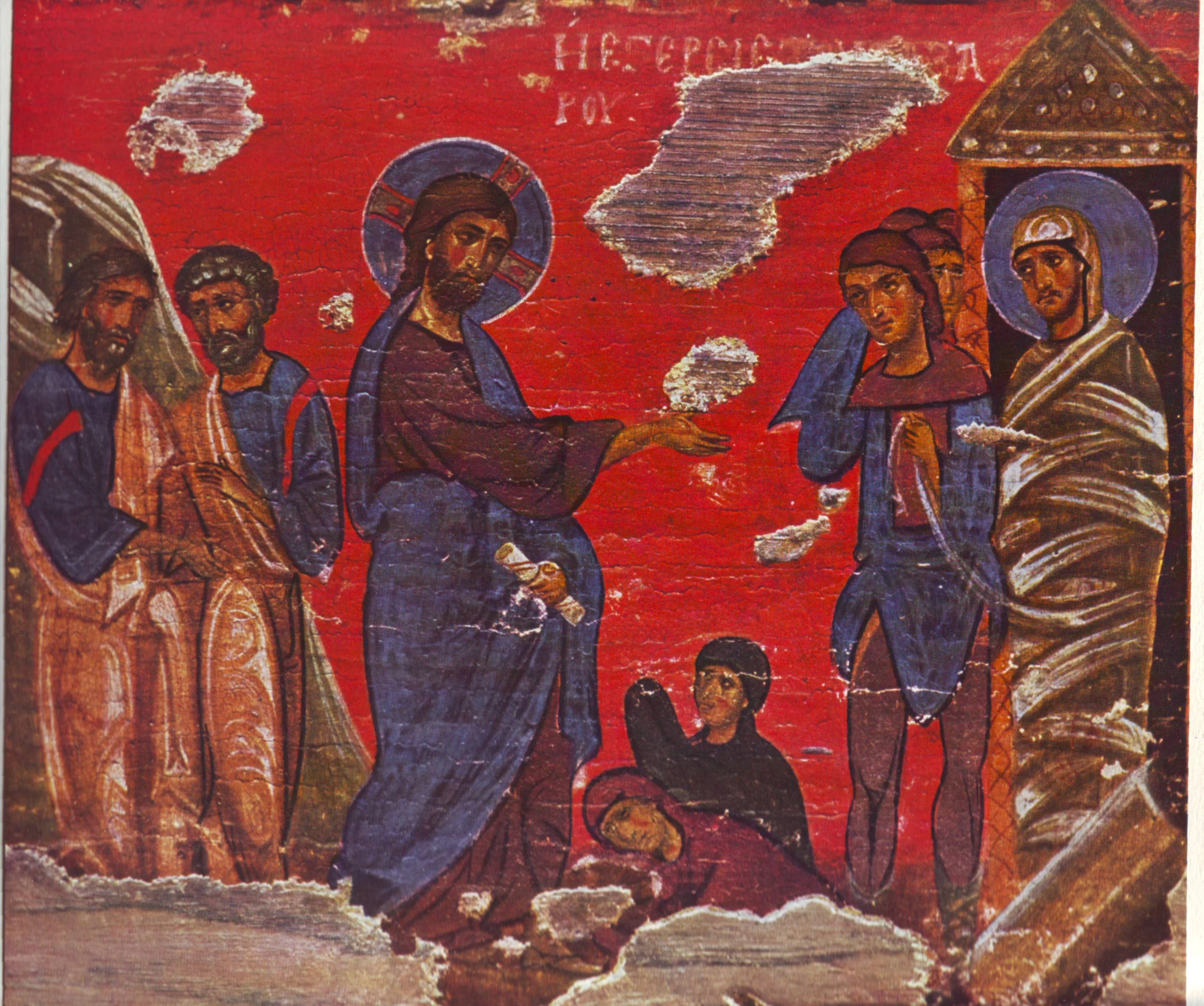Day of the Church Year: 7th Sunday of Easter
Scripture Passage: John 17:6-19
Always having been a Lutheran kid, my mental picture of nuns is shaped by movies. By nuns, I mean, yes, Roman Catholic women who enter into a convent, live in community, and devote themselves to God. I imagine Whoopie Goldberg in Sister Act, using music to reach out to the convent’s neighborhood and the world. I imagine Susan Sarandon in Dead Man Walking, running an after school program for kids in her New Orleans neighborhood and visiting a man on death row, a story actually based on the ministry of Sister Helen Prejean. I imagine Julie Andrews in The Sound of Music, sent as governess to live with and care for the Van Trapp family. In real life, I have never personally met a nun though I’ve certainly heard many stories from friends who grew up Roman Catholic. What’s interesting to me is the dual narrative of nuns’ lives. One narrative is women living in isolation though in community, praying for hours a day, married to God, and largely restricted from any interaction with the outside world, even through technology. The other narrative is about strong, radical women using the freedom and energies of single life to pour themselves into works of justice and acts of deep love for humanity. Though, like I said, I am not an authority on the realities of committing oneself to a convent, the dual narrative of nuns’ lives reveals the confusion that I think many of us Christians have about our relationship to the world.
In today’s gospel reading, Jesus prays for his disciples on the night before his death, and he prays about this question: how the disciples are to interact with the world. By the time John’s gospel was written, Christian persecution was in full swing: lions’ dens, crucifixion, stoning. In this terrifying context, how are Jesus followers meant to understand and engage with the world? Jesus asks God to protect the disciples, and he acknowledges that the world hates the disciples. But, in verse 15, Jesus says, “I am not asking you to take them out of the world, but I ask you to protect them from the evil one.” A couple verses later, Jesus declares, “As you have sent me into the world, so I have sent them into the world.” The world, in the gospel of John, is a place God loves. Remember that John is the gospel where we hear: For God so loved the world…, John 3:16. In John, the world, the cosmos, though certainly a mixed bag of sin and righteousness, light and darkness, is not an entity to ignore or avoid or think ourselves better than. Jesus sends the disciples into the world even though that world, literally, historically hated the disciples. Jesus sends the disciples into the world to share the life they know in Jesus, that others may abide in him, that all people may come to love one another.
Jesus prays that God would protect his disciples as they enter the world into which Jesus sends them, so we can only assume that Jesus sends us later Jesus followers into the world God so loves too. Of course, Christians’ relationship with the world was one of those hot topics in theology back in the day, say, mid-20th century. We know we’re not of the world. Perhaps we are in the world and meant to escape unscathed. Some of the theological reflection produced in seminaries and universities has led Christians of many traditions to try and remain unstained by the world, to read only Christian books, to listen only to Christian music, to refrain from profanity. (I’m not saying I want to hear profanity from any of you, just being clear.) We assume when we speak of the world that it is with disdain. The world and its values oppose us and our values, is how the story goes. There is a clear line drawn between Christians and non-Christians, between those who are of the world and those who are simply in it. I think this is a grave misunderstanding of our sacred scripture.
For one, we Christians are not somehow more pure than other people. Just last week, someone commented to me, “It’s a good thing you weren’t here earlier, pastor. I had some choice words about this situation.” The person who said this to me was apologetic, implying he was not acting as a Christian should. But the situation was genuinely frustrating, fraught with practical difficulty. We are Jesus followers, and we are also just people living in a complex, imperfect world.
Even more importantly, the gospel of John reveals a God who so loves the world that God shows up in the flesh—in Jesus. God does not remain unstained by the world. God comes here, to get mixed up in all that the world is. God enters the world, not to condemn the world but to save it, love it, feed it, heal it—to save, love, feed, and heal us.
Jesus sends us into the world, I think, like nuns into a lifetime of service to God. We live in community because Jesus following can be hard, and we rely on each other for strength and encouragement. Our question of the day is: What is the most spiritually fortifying part of church life for you? Perhaps the part most fortifying for you is related to worship or perhaps to a way that you serve others here. Perhaps it is Bible study or relationships that you have with people at Grace. To read reflections from our community, go to the Grace Facebook live stream feed for Sunday, May 16.
We are nourished by weekly worship and prayer, music and Holy Communion, study and discussion, acts of service and relationships. But once we are strengthened and encouraged, we go back out into the world to follow Jesus wherever he leads us, to works of justice and acts of deep love for humanity. We go out not to condemn the world but to love it as God does...or as best we can approximate. The world God so loves is the world where we live. We, alongside Jesus, pray that through us and guided by the Spirit of God, all the world may know the love of God. Thanks be to God! Amen.















